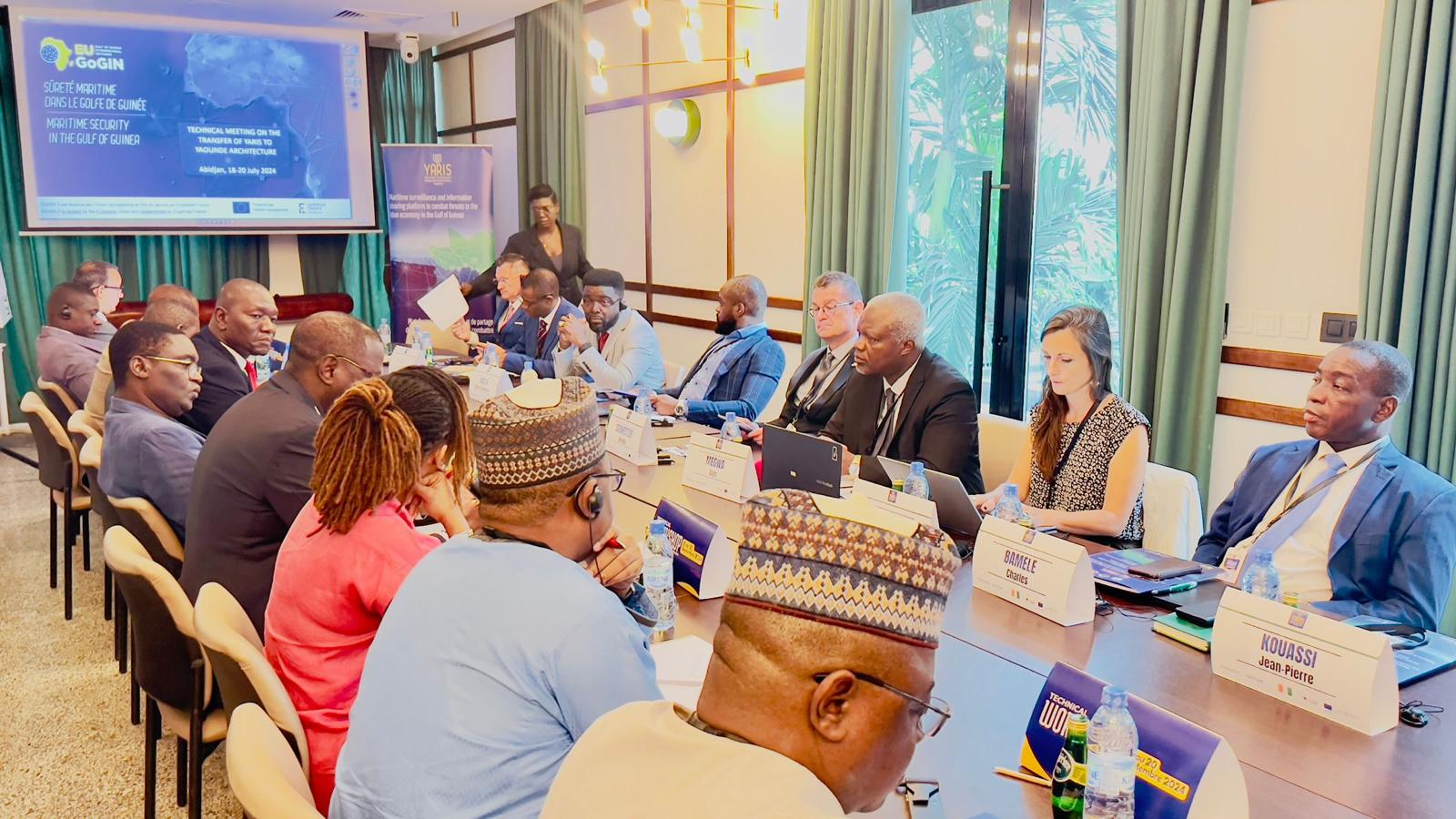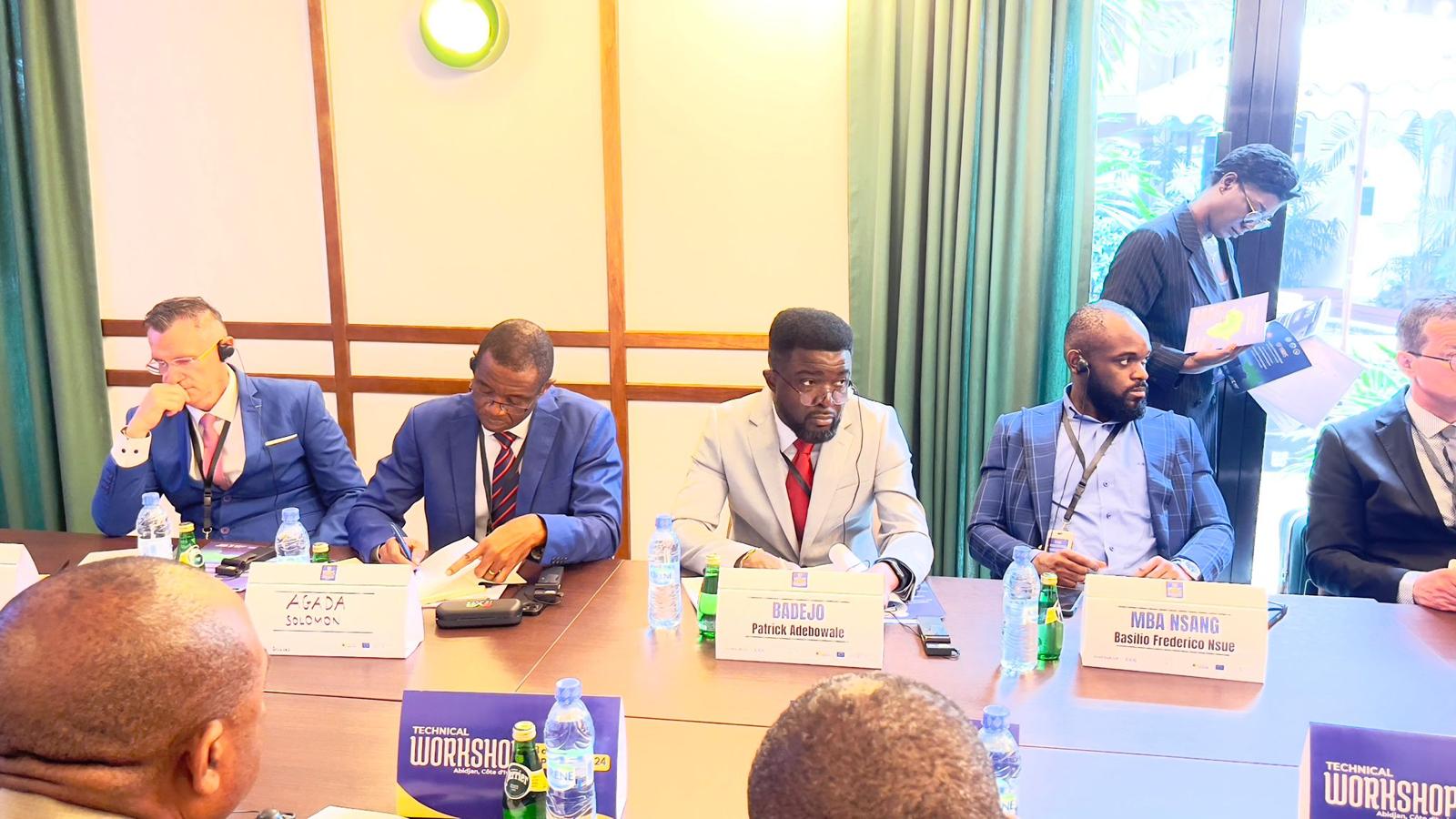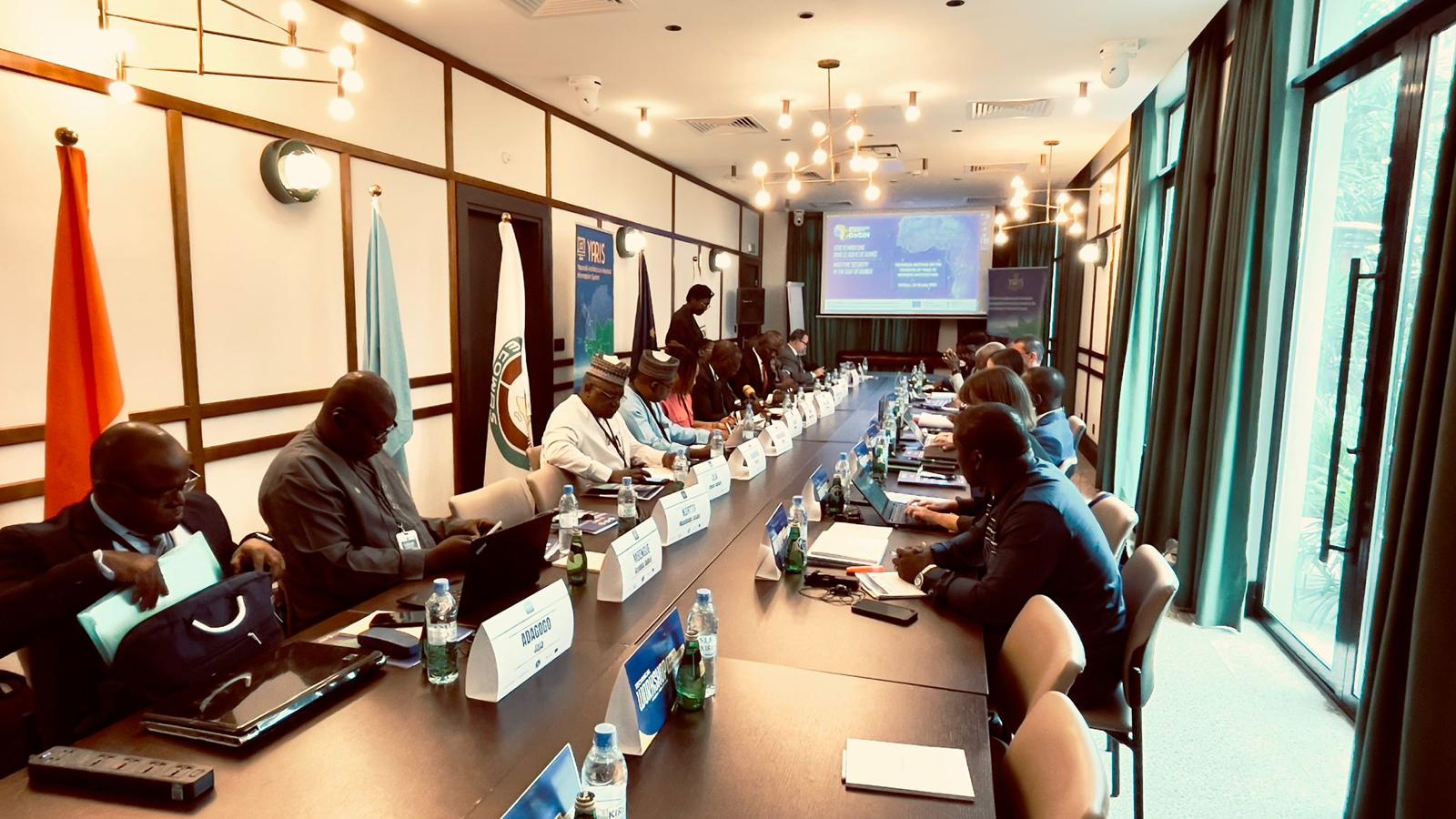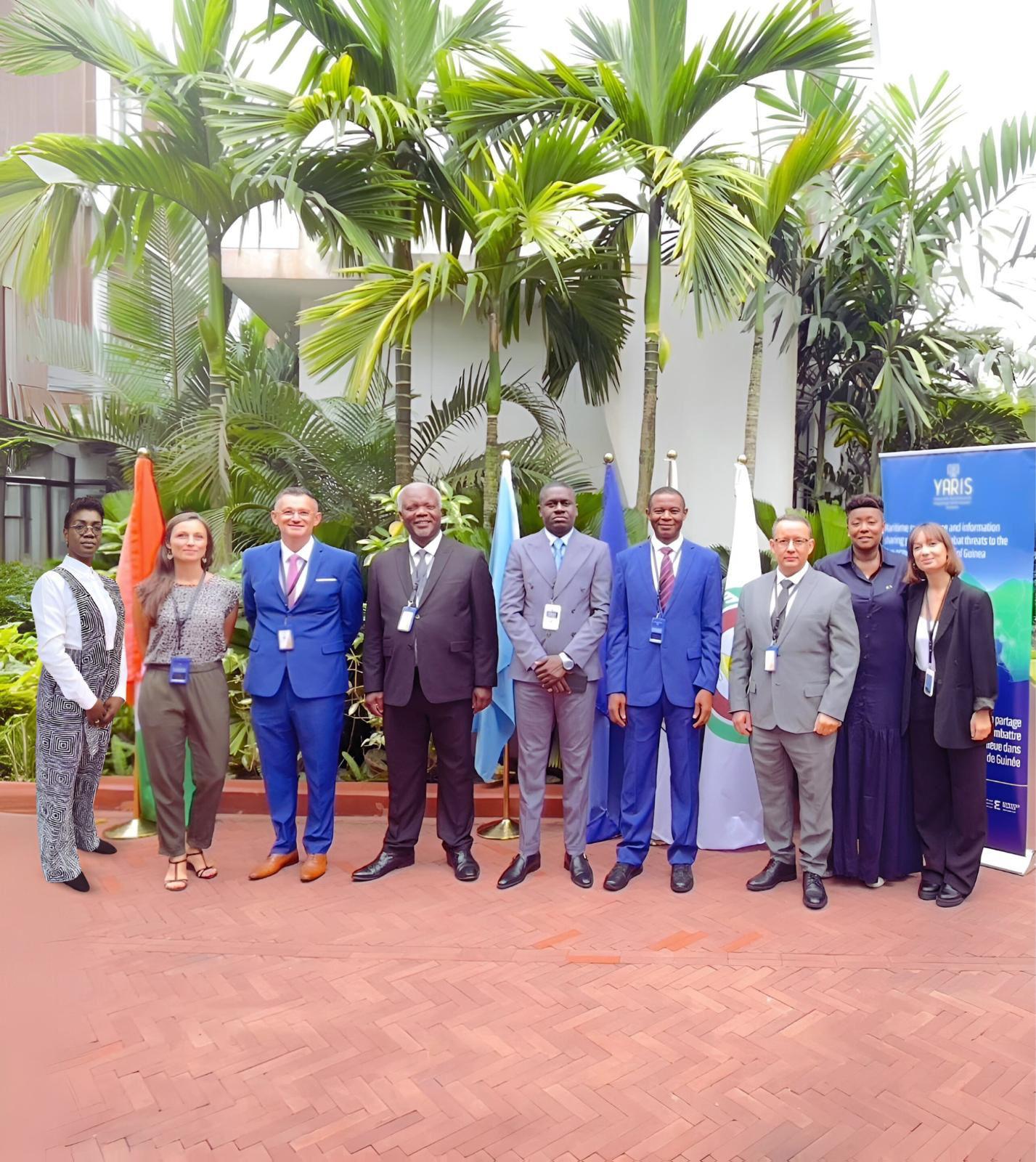In September 2024, a crucial technical meeting took place in Abidjan, Côte d’Ivoire, involving representatives from the Economic Community of Central African States (ECCAS), the Economic Community of West African States (ECOWAS), and the Gulf of Guinea Commission (GGC), Interregional Coordination Centre (ICC) Yaoundé, Yaoundé Architecture regional and zonal centres, and other entities participated alongside representatives from the European Union and Expertise France.. This meeting focused on the transfer of ownership and management of YARIS , a maritime surveillance and information sharing system integral to the Yaoundé Architecture.

The primary objective was to discuss the strategic plan for transferring YARIS to the Yaoundé Architecture and to provide key recommendations ahead of a planned meeting of the Heads of Institution of the Interregional Coordination Centre (ICC). Key discussion points included:
– Achieving political endorsement from ECCAS, ECOWAS, and GGC.
– Creating sustainable and alternative funding mechanisms psot-handover.
– Transferring YARIS training management to the region
– Transferring YARIS IT infrastructure and system management to the region
– Establishing legal ownership of YARIS within the region.

The agenda featured significant topics such as trainees feedback on YARIS 2.0, strategies for regional ownership and management r, alternative funding discussions, governance, and stakeholder engagement strategies.

This event marks a significant milestone in our mission to ensure YARIS is not only sustainable but fully owned and managed by the region.
At the meeting’s conclusion, several recommendations were made to the Heads of Institutions for approval.
These recommendations aim to facilitate a seamless and sustainable transfer of YARIS, ensuring robust management, training, and financial support within the maritime security framework of the Yaoundé Architecture.

As the Gulf of Guinea continues its efforts to sustainably address maritime threats, last week’s technical workshop marks a crucial step in strengthening regional cooperation and ensuring the long-term, effective management of vital maritime resources.
